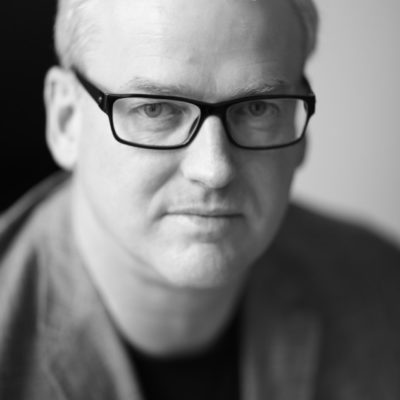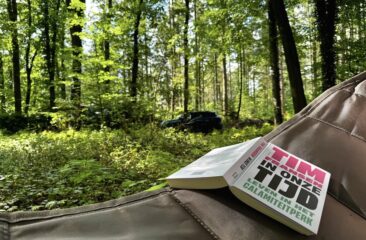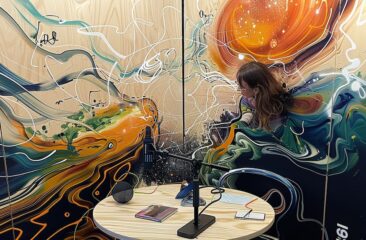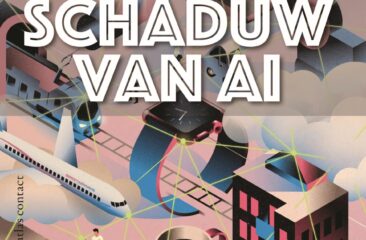Naast lezingen van Studium Generale maak ik ook regelmatig gebruik van TED-talks in mijn colleges. TED dat staat voor Technology, Entertainment en Design, is een jaarlijkse, vierdaagse bijeenkomst die in 1984 voor het eerst werd gehouden in Californië. Sprekers worden uitgenodigd om in maximaal 18 minuten “de presentatie van hun leven” te geven over hun gebied van expertise, over een bepaald project, of iets waarvan zij vinden dat het een idee is dat verspreid moet worden. Sinds 2009 kan er ook door derden een licentie worden aangevraagd om op lokaal niveau eendaagse conferenties of TEDx te organiseren volgens de huisstijl van TED. Ook in Nederland kennen we een groot aantal TEDx-bijeenkomsten (waaronder binnenkort ook TEDxArnhem).
Sinds 2006 zijn opnames van afzonderlijke TED-talks beschikbaar via TED.com en via andere kanalen zoals YouTube. Deze opnames zijn vrijgegeven onder een Creative Commons-licentie. Inmiddels staan er bijna 2.000 TED-talks online. Veel TED-talks gaan over de relatie tussen mens en technologie, een groot aantal van die TED-talks hebben mij de laatste jaren geinspireerd. Voor geinteresseerden een overzicht.
Hoe ziet de toekomst er uit?
- Kevin Kelly: How technology evolves (2005)
- Ray Kurzweil: The accelerating power of technology (2006)
- Juan Enriquez: The next species of human (2009)
- Ray Kurzweil: A university for the coming singularity (2009)
- Ian Goldin: Navigating our global future (2009)
- Amber Case: We are all cyborgs now (2010)
- Clay Shirky: How cognitive surplus will change the world (2010)
- Christopher “moot” Poole”: The case for anonymity online (2010)
- Sebastian Thrun: Google’s driverless car (2011)
- Kevin Slavin: How algorithms shape our world (2011)
- Daniel Kraft: Medicine’s future? There’s an app for that (2011)
- Eli Pariser: Beware online “filter bubbles” (2011)
- Massimo Banzi: How Arduino is open-sourcing imagination (2012)
- Sherry Turkle: Connected, but alone? (2012)
- Don Tapscott: Four principles for the open world (2012)
- Marc Goodman: A vision of crimes in the future (2012)
- Raffaello D’Andrea: The astounding athletic power of quadcopters (2013)
- Ken Jennings: Watson, Jeopardy and me, the obsolete know-it-all (2013)
- Elon Musk: The mind behind Tesla, SpaceX, SolarCity (2013)
- Juan Enriquez: Your online life, permanent as a tattoo (2013)
- Kenneth Cukier: Big data is better data (2014)
- Ray Kurzweil: Get ready for hybrid thinking (2014)
- Miguel Nicolelis: Brain-to-brain communication has arrived. How we did it (2014)
- Fei-Fei Li: How we’re teaching computers to understand pictures (2015)
- Nick Bostrom: What happens when our computers get smarter than we are? (2015)
Innovatie en de toekomst van werk:
- Rodney Brooks: Why we will rely on robots (2013)
- Andrew McAfee: What will future jobs look like? (2013)
- Robert Gordon: The death of innovation, the end of growth (2013)
- Erik Brynjolfsson: The key to growth? Race with the machines (2013)
- The future of work and innovation: Robert Gordon and Erik Brynjolfsson debate at TED2013
Netwerken en complexe systemen:
- Deborah Gordon: The emergent genius of ant colonies (2003)
- Steven Strogatz: The science of sync (2004)
- Nicholas Christakis: The hidden influence of social networks (2010)
- Nicholas Christakis: How social networks predict epidemics (2010)
- Geoffrey West: The surprising math of cities and corporations (2011)
- James B. Glattfelder: Who controls the world? (2012)
- Nicolas Perony: Puppies! Now that I’ve got your attention, complexity theory (2013)
Playlists samengesteld door TED-curatoren:
- Tech breakthrough
- Who are the hackers?
- Open-source, open world
- How to live with robots
- Media with meaning
- Our digital lives
- Making sense of too much data
- What does the future look like?
- The dark side of data
- Will drones save us or destroy us?
- MOOCs 101
Playlists op YouTube:
Video: Nicholas Negroponte: A 30-year history of the future (2014)




1 reactie
Leuke lijst. Heb er wel paar gezien maar deze allemaal niet. Ga er zeker paar bekijken op een rustige dag.
Zelf heb ik een presentatie YT filmpje die mij altijd weer pakt, wakker schud en wat nieuwe energie om te blijven doen wat ik doe. Is Guy Kawasaki net nadat Steve Jobs overleden is, dan heeft hij het programma aangepast voor die dag en vertelt de 12 lessen die hij van Jobs leerde. Ben eigenlijk niet zo een Jobs fan per se, zeer veel respect al is het maar omdat je het niet ontkennen kan dat die man iets goed deed, maar van Guy des te meer. Misschien vinden anderen dit ook leuk dus hier staat de video https://www.youtube.com/watch?v=DR_wX0EwOMM